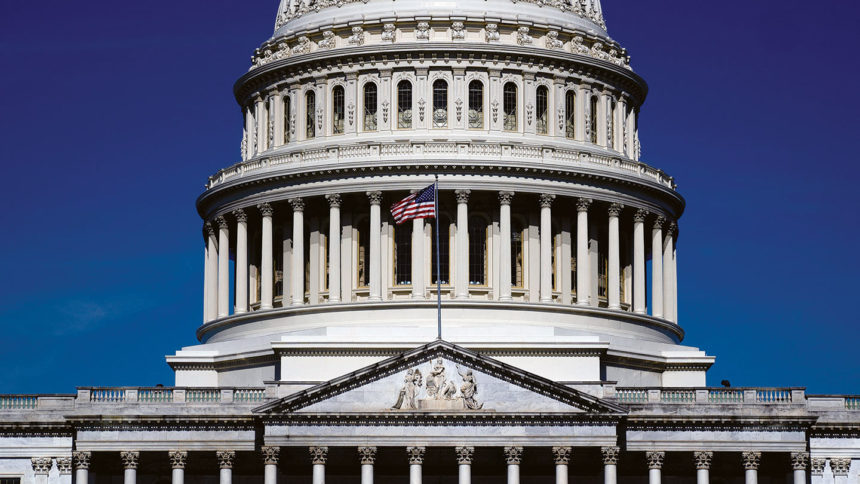
A Minnesota Congresswoman has introduced legislation that could stop the Centers for Medicare & Medicaid Services from implementing its proposed nursing home staffing requirements.
Protecting Rural Seniors Access to Care Act, H.R. 5796, would prohibit federal officials from finalizing the draft rule introduced on Sept. 1 and convene a nursing home workforce advisory panel instead.
“I am deeply disappointed CMS continued to move forward with this rule given the public knows their reservations regarding its efficacy,” Rep. Michelle Fischbach (R-MN) said in a press release publicizing the bill’s Sept. 29 introduction.
Fishbach was referencing a CMS-backed study looking for ideal staffing standards that ultimately found there was “no single staffing level that would guarantee quality care.”
“The Protecting Rural Seniors Access to Care Act will keep CMS from implementing this rule until it can prove it will not result in the closure of skilled nursing facilities, will not harm patient access, and will not make workforce shortage issues worse in areas that are already struggling,” Fischbach added.
The bill, which had just one co-sponsor at introduction, is creating instant buzz in the long-term care sector, which has expressed intense concern about the ability to staff up during an ongoing workforce crisis that has disproportionately affected rural providers.
“Rural and underserved communities already face a crisis in access to care, and CMS’s troublesome mandate would only make it harder for older adults and families in these communities — and across the country — to get the care they need,” LeadingAge President and CEO Katie Smith Sloan told McKnight’s Long-Term Care Service in an email late Tuesday. “Getting this wrong will undercut equity and access in care across the aging services spectrum. That’s why LeadingAge wholly supports this bill and will encourage our advocates to urge their representatives to do the same.”
The nonprofit Good Samaritan Society hosted Fishbach at its 82-bed nursing home in rural Pipestone, MN, on August 22.
“We were hopeful that there was going to be some action, but we weren’t sure how strongly Rep. Fischbach was going to come out with it,” Good Sam President and CEO Nate Schema told McKnight’s at the AHCA Convention in Denver late Tuesday.
“She was able to see firsthand how this minimum staffing would impact a rural location. I think she also recognized that this doesn’t just affect us,” he said. “This affects the hospital systems that are diligently working to try to move people through and find placement.”
Schema said he was “excited” by the possibility of the bill postponing any mandate until there is a stable workforce and less threat to care access. Good Sam is aligned with Sanford Health, one of the largest health providers in the Midwest.
The organization is also working with Sen. Amy Klobuchar (D-MN), who has expressed concerns about healthcare hiring in that state. Winning over Democrats will be critical in finding a legislative fix for the mandate issue, but Schema said the fact that some lawmakers are showing their willingness to block the rule is a positive development.
“It’s a reflection of where concerned community members are and other groups coming to the table. This rule just doesn’t make sense,” Schema added. “This isn’t the right time.”
In a statement to McKnight’s, AHCA said it “fully” supports the bill and will “look forward to advocating for its passage.”
“We thank Representatives Fischbach and [co-sponsor] Pence for introducing this legislation,” the association said by email. “Rather than a mandate, we need thoughtful workforce policies that will help address nationwide nursing shortages, attract more caregivers to the profession, and support care professionals in developing a career in long-term care.”
Fischbach’s office said the bill has the support of the Minnesota Hospital Association, which echoed earlier concerns from the American Hospital Association about “implementing a numerical staffing threshold in two short years [amid unresolved] structural healthcare workforce shortages.”
“This bill will help to mitigate the risk of unintended negative consequences that would arise from rigid, one-size-fits-all mandates — especially amid a historic workforce crisis and in rural areas where resources are notably limited,” the Minnesota association said.
The bill would seem to have ready-made support in the Senate chamber. Late last week, a bipartisan group signed on to a letter asking CMS to withdraw the mandate, saying this is the “worst possible time” to move forward with it.
LeadingAge said it “roundly supports” Fischbach’s bill, “which would also require annual analysis and recommendations by a new advisory committee on the nursing home workforce shortage.” The association is asking members to encourage their own representatives to become co-sponsors.




